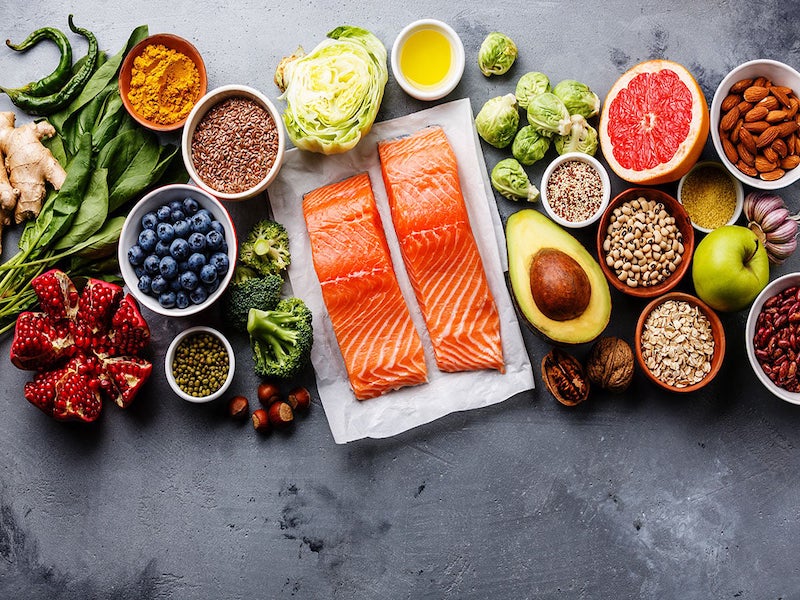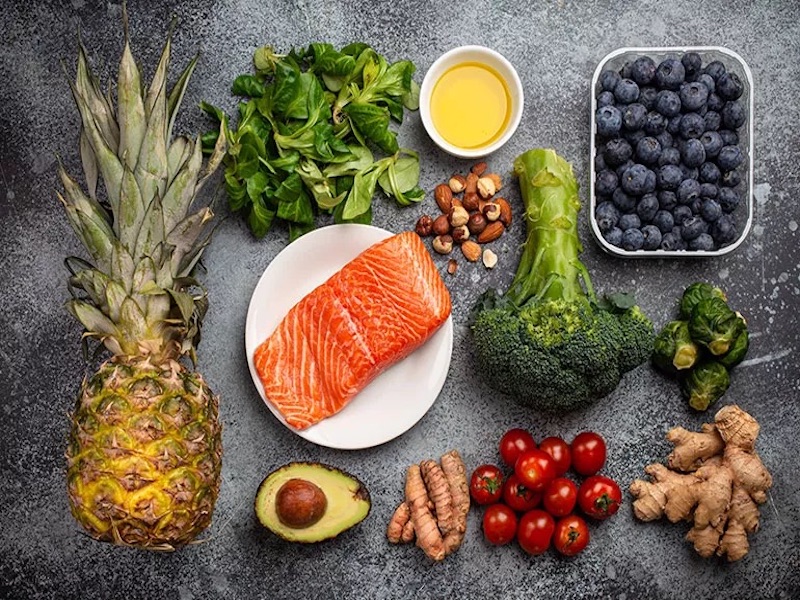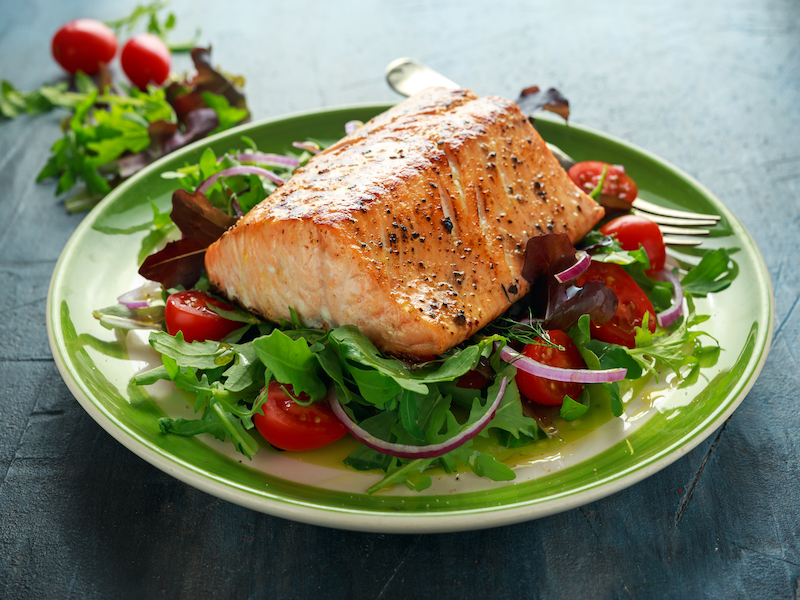
Anti-inflammatory diet and detailed instructions on how to do it
Inflammation is the body’s natural response to fight against harmful agents such as bacteria, viruses, and injuries. However, long-term inflammation can cause serious health effects such as heart disease, cancer, and diabetes. In this article, Evaworlds will introduce the anti-inflammatory diet in controlling and preventing inflammation, contributing to comprehensive health protection.
What is an anti-inflammatory diet?
According to the National Institutes of Health (NIH), an anti-inflammatory diet is a diet that focuses on foods that reduce inflammation in the body. This diet includes many foods such as fruits, vegetables, whole grains, fatty fish, nuts, and legumes.

Mechanism of action of an anti-inflammatory diet
Anti-inflammatory foods are high in antioxidants, fiber, and omega-3s. These substances can neutralize free radicals, reducing the body’s inflammatory response.
See more:
- What is the Galveston diet? Foods to eat and avoid on the Galveston diet
- What is Golo diet? How to apply and the most detailed menu
- HMR Program: Pros and cons of the HMR diet and menu for 7 Days
Anti-inflammatory diet foods
Choosing the right foods plays an extremely important role in effectively applying an anti-inflammatory diet. Below is a list of some foods rich in anti-inflammatory properties, helping you easily build a nutritious and delicious menu:
Food group rich in antioxidants
- Fruits: Blueberries, strawberries, grapes, pomegranates, oranges, kiwis, apples, grapefruit, guava, papaya, mango, etc.
- Vegetables: Carrots, broccoli, spinach, bell peppers, sweet potatoes, tomatoes, cauliflower, asparagus, Brussels sprouts, pumpkin, cucumbers, celery, etc.
- Drinks: Green tea, fruit juice, vegetable smoothie.

Fiber-rich food group
- Whole grains: Oats, brown rice, quinoa, whole-wheat bread, whole-wheat pasta.
- Beans: Black beans, lentils, green beans, red beans, peas, soybeans.
- Seeds: Chia seeds, flax seeds, walnuts, almonds, cashews.
- Fruits and vegetables: See list in group 1.
Foods rich in omega-3
- Fatty fish: Salmon, mackerel, herring, tuna, sardines, cod.
- Seafood: Shrimp, crab, snails.
- Chicken eggs: Especially chicken eggs and free-range chicken eggs.
- Seeds: Chia seeds, flax seeds.
- Vegetable oils: Olive oil, canola oil, sunflower oil.
Foods you need to limit on an anti-inflammatory diet
To achieve the best results, you should limit consumption of certain food groups that can increase inflammation. Below is a list of food groups you should limit:
Food group rich in saturated fat
- Red meat: Beef, veal, lamb, pork.
- Processed meat: Sausages, cold cuts, sausages, pate, etc.
- Fatty cheeses: Cheddar cheese, cream cheese, mozzarella cheese, etc.
- Whole butter: Animal butter, heavy cream.
Food group rich in trans fats
- Fried foods: Fried chicken, French fries, fried bread, etc.
- Cakes: Cakes, cookies, cakes, etc.
- Fast food: Hamburger, pizza, instant noodles, etc.
See more:
- Jenny Craig Diet: Benefits, 7-day menu suggestion
- What is Weight Watchers? Compare Weight Watchers (WW) vs Keto
- OPTAVIA diet: Principles, benefits, 7-day menu according to OPTA diet
Benefits of an anti-inflammatory diet
Some benefits that an anti-inflammatory diet brings:
- Reduce the risk of cardiovascular diseases: Inflammation is one of the main causes of cardiovascular diseases such as atherosclerosis, myocardial infarction, and stroke. An anti-inflammatory diet helps reduce inflammation, thereby protecting heart health.
- Reduces the risk of cancer: Chronic inflammation can lead to the development of cancer cells. An anti-inflammatory diet helps control inflammation and helps prevent cancer.

- Reduced risk of diabetes: Inflammation can affect the ability to regulate blood sugar levels. An anti-inflammatory diet contributes to improving insulin resistance and reducing the risk of diabetes.
- Improve digestive system health: Inflammation affects the digestive system, leading to problems such as irritable bowel syndrome, Crohn’s disease, ulcerative colitis, etc. When applying an anti-inflammatory diet, The body can reduce inflammation and improve the digestive system.
- Strengthens the immune system: Chronic inflammation can weaken the immune system, making the body susceptible to disease. An anti-inflammatory diet helps strengthen the immune system and protect the body from harmful agents.
- Helps control weight and maintain a healthy body shape: Inflammation can lead to weight gain and obesity. An anti-inflammatory diet helps you lose weight effectively and maintain a healthy body shape.
Tips for adopting an anti-inflammatory diet
- Plan reasonable meals with a variety of foods: Determine your calorie and nutrient needs every day. Then, you proceed to build a reasonable meal plan, ensuring that you provide all the necessary food groups.
- Process food in a healthy way: Limit fried and stir-fried foods, and prioritize processing methods such as steaming, boiling, and baking. Use natural herbal spices instead of salt and sugar.
- Combined with a scientific lifestyle and regular exercise: Get enough sleep, and limit tension and stress. Exercise for at least 30 minutes every day to improve overall health.
Conclusion
An anti-inflammatory diet is an effective way to protect your overall health. By adopting this diet scientifically and combining it with a healthy lifestyle, you can reduce your risk of chronic diseases, improve your health, and enhance your quality of life. Follow Evaworlds to update the latest information.














